对象是无序的,必须使用属性名去匹配
因此解构赋值时变量名必须与对象的属性名保持一致
const obj={ a:1, b:2 }; let {a,b}=obj;
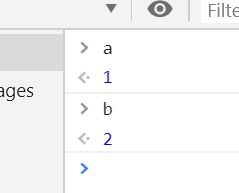
比较复杂的结构条件:
<!DOCTYPE html>
<html lang="en">
<head>
<meta charset="UTF-8">
<title>demo</title>
</head>
<body>
<script>
const person={
name:"cyy",
age:10,
friends:[{
name:"cyy2",
age:20
},{
name:"cyy3",
age:30
},{
name:"cyy4",
age:40
}]
};
const {name}=person;//name "cyy"
const {age}=person;//age 10
//只能取到friend1,不能取到friends
const {friends:[friend1]}=person;//friend1 {name: "cyy2", age: 20}
const {friends:[,friend2]}=person;//friend2 {name: "cyy3", age: 30}
const {friends:[,,friend3]}=person;//friend3 {name: "cyy4", age: 40}
const {friends:[{name}]}=person;//name "cyy2"
const {friends:[,{age}]}=person;//age 30
const {friends:[{name},{name},{name}]}=person;
</script>
</body>
</html>
如果出现对象属性名重复的情况,会报错

解决方法是使用: 来定义别名
const {friends:[{name:fname1},{name:fname2},{name:fname3}]}=person;// "cyy2"

对象的解构赋值结合扩展运算符:
const obj={ name:"cyy", age:18, id:1 } const {name,...oth}=obj;
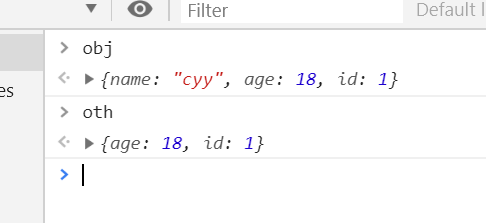
使用扩展运算符合并对象:
const obj1={ name1:"cyy1", age1:18 } const obj2={ name2:"cyy2", age2:28 } const obj3={ name3:"cyy3", age3:38 } const obj={ name:"cyy", ...obj1, ...obj2, ...obj3 }
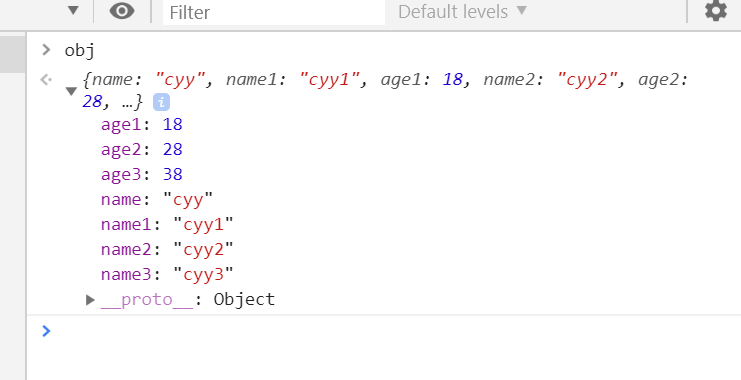
如何对已经声明的变量进行对象的解构赋值:
let age;//声明变量 const obj={ name:"cyy", age:18 }; { age }=obj;
这种情况下会报错,因为把{age}看成了一个块级作用域

解决方法是外面用圆括号包裹
let age;//声明变量 const obj={ name:"cyy", age:18 }; //{ age }=obj; ({ age }=obj);

总而言之不建议先声明再结构赋值哈,最好是声明的同时进行解构赋值
默认值:
当属性值不存在或者为undefined时,会使用默认值
const person={ name:"cyy", age:18 }; let {name,age=20,hobby=["html","css"]}=person;

对象的解构赋值常用场景:
提取对象属性
const {name,hobby:[hobby1]}={
name:"cyy",
age:18,
hobby:[
"html",
"css"
]
}
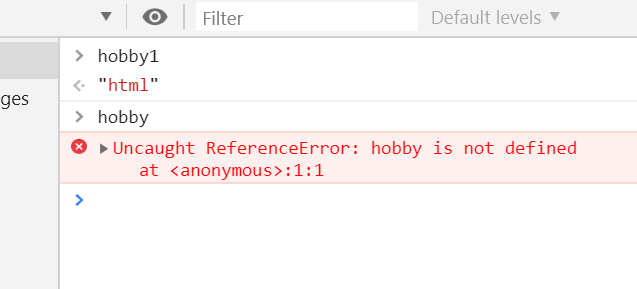
需要注意的是,这样是拿不到hobby的值,如果需要获取hobby,则需要单独再加
const {name,hobby:[hobby1],hobby}={
name:"cyy",
age:18,
hobby:[
"html",
"css"
]
}
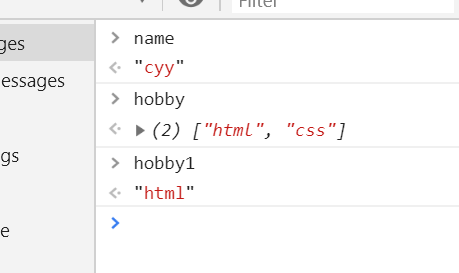
使用对象传入乱序的函数参数:
function Ajax({ url, data, type="get" }){ console.log(type); } Ajax({ //可以乱序 url:"getxxx", data:{ a:1 } })

获取多个 函数返回值
function getInfo(uid){ //... return { status:"success", data:{ a:1 }, info:"hello" } } const {status,data,info}=getInfo(333);
